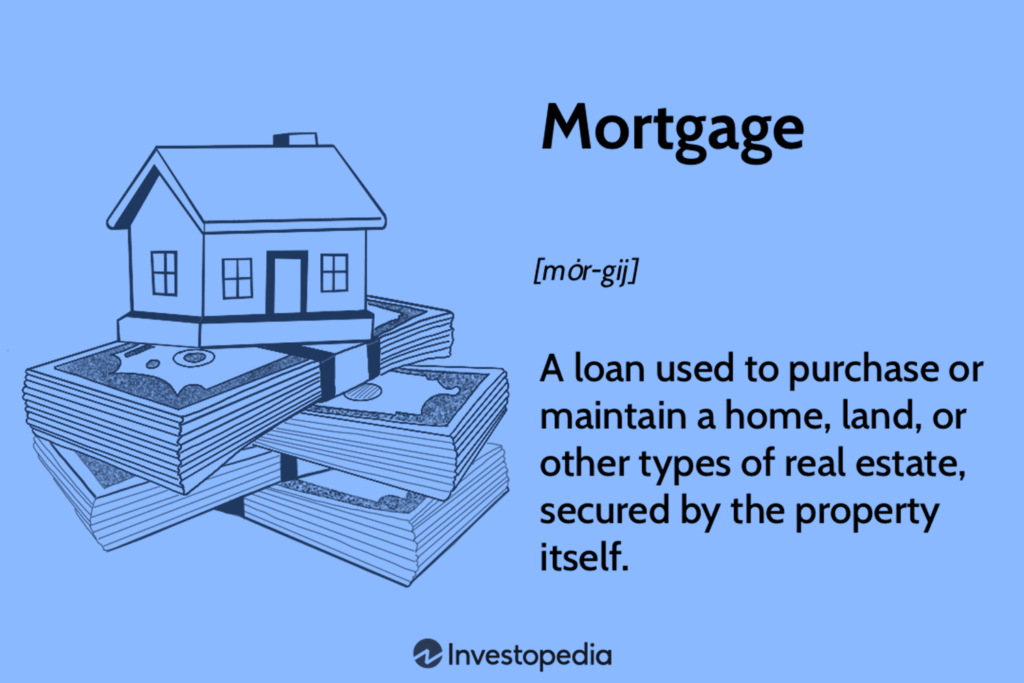Fintechzoom How Much House Can I Afford – Plan Wisely!
Embarking on the quest for your ideal home is both thrilling and practical. With Fintechzoom as your guide, let’s navigate the financial landscape together, unravelling every aspiring homeowner’s question: How many houses Can I Afford?
Calculating how much house you can afford involves analysing income, debts, and expenses. Tools like the debt-to-income ratio help determine a suitable mortgage amount. Consulting lenders and financial advisors aids in making informed decisions.
Let’s delve into the exciting journey of discovering ‘How Much House Can I Afford?’ with Fintechzoom as your trusted navigator.
Understanding Your Financial Situation – Master Finance!
Before diving into the realm of homeownership, it’s essential to master your financial situation. Begin by assessing your income streams, including salaries, bonuses, and other sources.
Take stock of recurring expenses such as rent, utilities, groceries, and loan payments. Creating a comprehensive budget can shed light on your spending habits and help identify areas for potential savings.
Next, scrutinise your debt obligations, including credit card balances, student loans, and car payments. Calculate your debt-to-profits ratio (DTI) with the aid of dividing your general month-to-month debt bills with the aid of using your gross month-to-month profits.A lower DTI indicates a healthier financial profile and may improve your chances of securing a favorable mortgage rate.
Furthermore, evaluate your savings and investment accounts. Building an emergency fund can provide a safety net during unexpected expenses or job loss.
Consider maximising contributions to retirement accounts to secure your financial future. Understanding your overall financial health empowers you to make informed decisions and confidently embark on the homeownership path.
Introduction to Affordability Calculations – Know Your Dreams!
As you embark on the exciting homeownership journey, understanding affordability calculations is paramount. Begin by determining your desired lifestyle and housing preferences.
Consider location, property type, and amenities that align with your aspirations. Visualise your dream home and set realistic expectations based on your financial capacity.
Next, explore affordability tools and calculators available online. These resources allow you to input various financial variables, including income, debts, expenses and desired down payment, to estimate your maximum affordable mortgage amount.
By leveraging these tools, you gain insight into your purchasing power and can tailor your home search accordingly.
Furthermore, familiarise yourself with lending criteria and mortgage qualification requirements. When assessing loan applications, lenders evaluate factors such as credit score, employment history, and debt-to-income ratio.
Strengthening your financial profile through prudent money management and debt reduction efforts can enhance your eligibility for favourable loan terms.
In essence, knowing your dreams and understanding affordability calculations are integral steps in home-buying. Equipping yourself with financial knowledge and leveraging available resources can transform your homeownership aspirations into reality while staying within your means.
Read Also: Netflix Stock Fintechzoom – A Comprehensive Guide On Investment!
Factors Affecting Home Affordability – Decode Factor!

Location and Housing Market Trends:
- Real estate prices vary significantly based on location and market conditions.
- High-demand areas often have higher prices, impacting affordability.
Employment Stability:
- Higher incomes generally allow for more expensive homes.
- A stable employment history reassures lenders and positively impacts affordability.
Credit Score and Debt-to-Income Ratio (DTI):
- A higher credit score typically results in better mortgage terms.
- A lower DTI indicates more financial flexibility, positively influencing affordability.
Calculating Your Affordability Range – Expand The Possibilities!

Calculating your affordability range is a crucial step in your journey towards homeownership. It involves assessing your financial resources and determining the maximum amount you can comfortably afford to spend on a home.
Start by evaluating your monthly income and expenses to gain insight into your financial capacity. Consider all sources of income, including salaries, bonuses, and investments, while accounting for recurring costs such as rent, utilities, and debt payments.
Once you have a clear financial situation, calculate your debt-to-income ratio (DTI). This ratio compares your monthly debt payments to your gross monthly income and is a key indicator of your financial health.
Aim for a DTI below 43%, as this is typically the maximum threshold lenders prefer when considering mortgage applications. By optimising your DTI, you can expand your affordability range and increase your chances of securing a favourable mortgage rate.
Moreover, explore different mortgage options and consider interest rates, loan terms, and down payment requirements. Use online affordability calculators to estimate your maximum mortgage amount based on your income, debts, and desired down payment.
By expanding your possibilities and understanding your affordability range, you can confidently navigate home-buying and find a property that aligns with your financial goals and lifestyle.
Debt-to-Income Ratio (DTI) Analysis – Optimize DTI!
Your debt-to-income ratio (DTI) is a crucial financial metric that lenders use to assess your ability to manage monthly mortgage payments. It represents the percentage of your gross monthly income that goes towards paying off debts.
To optimise your DTI, assess your current debt obligations, including credit card balances, student loans, car payments, and other outstanding loans.
Next, calculate your DTI by dividing your total monthly debt payments by your gross monthly income and multiplying the result by 100 to express it as a percentage.
Aim to keep your DTI below 43%, as lenders commonly prefer this threshold. Reducing your existing debt or increasing your income can lower your DTI and improve your financial profile.
Consider strategies such as debt consolidation or refinancing to streamline your debt payments and lower your monthly obligations. Prioritise paying off high-interest debts and avoid taking on new debt before applying for a mortgage.
By optimising your DTI, you increase your chances of qualifying for a mortgage and position yourself for better loan terms and lower interest rates in the long run.
Credit Score Impact on Affordability – Boost The Power!
Your credit score plays a significant role in determining your affordability when purchasing a home. Lenders use your credit score to assess your creditworthiness and evaluate the risk of lending you money.
A higher credit score indicates responsible financial behaviour and may qualify you for lower interest rates and better loan terms. On the other hand, a lower credit score may result in higher interest rates or even difficulty obtaining a mortgage.
To boost the power of your credit score, start by obtaining a copy of your credit report from major credit bureaus. Review the report carefully for errors or discrepancies that could negatively impact your score. Address any inaccuracies by disputing them with the credit bureau to ensure your credit report reflects accurate information.
Read Also: Bitcoin Price Fintechzoom – The King Of Cryptocurrency!
Next, improve your credit utilisation ratio by paying down existing debts and avoiding maxing out your credit cards. Timely payments on all your bills and loans can also positively impact your credit score. Avoid opening new lines of credit or closing existing accounts, as these actions can temporarily lower your score.
Mortgage Pre-Approval Process – Start Your Journey!

Documentation Gathering: Collect financial documents such as pay stubs, tax returns, bank statements, and employment history.
Credit Check: Lenders will pull your credit report to assess your credit history and score.
A good credit score increases your chances of pre-approval and favourable loan terms.
Income Verification: Verify your income through pay stubs, W-2 forms, tax returns, and bank statements. Stable employment and consistent income demonstrate financial stability to lenders.
Debt-to-Income Ratio Evaluation: Lenders analyse your debt-to-income ratio (DTI) to ensure you can manage mortgage payments alongside existing debts. Aim for a DTI below 43% for better chances of pre-approval.
Pre-Approval Application: Submit a pre-approval application with your lender, including all required documentation. Provide accurate information to expedite the pre-approval process.
Review and Decision: Lenders review your application, credit history, and financial documents.
The pre-approval decision typically takes a few days to a week.
Pre-Approval Letter: You’ll receive a pre-approval letter outlining the maximum loan amount you qualify for.
Benefits of Pre-Approval:
- Know your budget and shop confidently within your price range.
- Gain an edge in competitive housing markets by demonstrating seriousness to sellers.
- Streamline the mortgage application process once you find your dream home.
- Starting your journey with a mortgage pre-approval sets a strong foundation for your homebuying process, providing clarity and confidence as you navigate the housing market.
Affordability Tools and Calculators – Empower With Tricks!

Affordability tools and calculators are invaluable resources for aspiring homebuyers, empowering them with valuable insights and strategies to make informed decisions.
These tools enable individuals to assess their financial situation, explore various mortgage options, and estimate their maximum affordable home price based on their income, debts, expenses, and desired down payment.
By leveraging affordability tools and calculators, homebuyers can gain a deeper understanding of their financial capacity and determine a realistic budget for their home purchase.
These tools provide users with customisable parameters and scenarios, allowing them to experiment with different variables and visualise how changes in income, debts, and down payment amounts can impact their affordability.
Moreover, affordability tools often have built-in features and functionalities to streamline home buying. From generating detailed affordability reports to providing recommendations for suitable mortgage products, these tools empower homebuyers with the knowledge and confidence to navigate the complexities of the real estate market.
Consulting Financial Advisors for Affordability Assessment – Unlock Experts Insight!
Navigating the complexities of affordability assessment requires expert guidance and insight from financial advisors. Consulting with financial professionals empowers homebuyers to comprehensively understand their financial situation and make informed decisions about their home purchases.
Financial advisors possess specialised knowledge and expertise in budgeting, debt management, credit optimisation, and mortgage financing. They can assess your financial health, analyse your income, expenses, and debts, and provide personalised recommendations tailored to your unique circumstances and goals.
Unlocking expert insights involves engaging in meaningful conversations with financial advisors to explore various affordability scenarios and identify strategies to maximise your purchasing power. Advisors can help you prioritise financial goals, develop a realistic budget, and investigate financing options that align with your long-term objectives.
In summary, consulting financial advisors unlocks a wealth of expert insight and guidance, empowering homebuyers to make informed decisions and achieve their homeownership dreams.
Long-term Financial Planning for Homeownership – Future-Proof!

Read Also: Asx Fintechzoom – The Detailed Guide!
Long-term financial planning is essential for individuals aspiring to become homeowners, as it lays the foundation for a secure and sustainable future. Future-proofing your finances involves strategic decision-making and proactive measures to ensure that you can afford your home now and in the years to come.
Start by setting clear financial goals and priorities that align with your homeownership aspirations. Consider your desired home price, down payment amount, monthly mortgage payments, and long-term financial objectives. Establishing a roadmap for achieving these goals helps create a sense of direction and purpose in your financial planning journey.
Next, build a robust savings and investment strategy to support your homeownership goals. Allocate funds towards an emergency fund to cover unexpected expenses and ensure financial stability in times of uncertainty. Explore potential growth and stability opportunities, such as retirement accounts, stocks, bonds, and real estate investment trusts (REITs).
By embracing long-term financial planning strategies, you can future-proof your finances and lay a solid foundation for homeownership success. With careful consideration and proactive measures, you can achieve your homeownership dreams while safeguarding your financial well-being for the years ahead.
Frequently Asked Questions:
How do market trends affect home affordability?
Market trends, such as supply and demand dynamics and interest rates, can impact home prices and affordability.
Why is a credit score important in home affordability?
A good credit score can result in better mortgage terms and lower interest rates, making homeownership more affordable. Lenders use credit scores to assess the lending risk, impacting the loan amount and terms.
What role does location play in home affordability?
Location greatly influences home prices, with high-demand areas often commanding higher prices. Factors like proximity to amenities, schools, and job centres can impact affordability.
Conclusion:
Determining your affordable home budget requires assessing your income, debts, and expenses. Utilise tools such as the debt-to-income ratio to gauge a reasonable mortgage amount. Seeking guidance from lenders and financial advisors enhances your decision-making process.
Read Also:
. Fintechzoom Luxury Watches – Meet the Style!
. Fintechzoom Qqq Stock – Your Guide To Financial Insights!
. Russel 2000 Index Fintechzoom – Everything In 2024!





